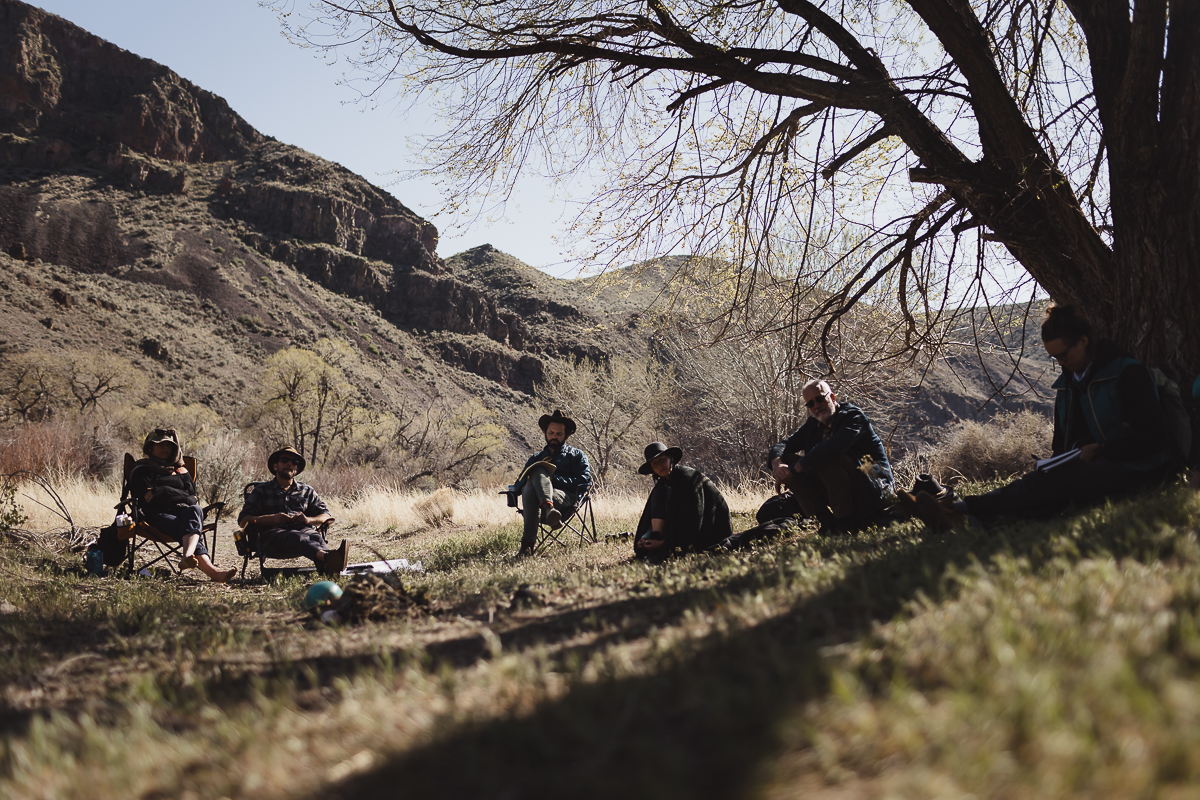
The term apocalypse is being thrown around a lot these days.
For a few years, I attended a Christian "bible" school, and my history teacher was the wife of the well-known "end of times" writer, Hal Lindsey. Yes, my history teacher was married to a man who used biblical prophecy to compellingly argue his case that Jesus Christ would return to earth in the 1980s, beginning a world war between Christ and Anti-Christ (check out his book, The 1980s: Countdown to Armageddon). Lindsey has sold over 35 million books according to Amazon.
Because I wasn't raised in this type of fundamentalist Christian household (my mother is a faithful Christian and my father a Jew who was kicked out of the temple school for arguing with the Rabbi), even at a young age I was impressed and intrigued by the spell that people could fall under when it came to end-times ideology.
More recently, science has become the predictor of end-times. As a child, it was the ozone hole that would continue to expand until we all burned up from the radiation of the sun. More recently, news media has used climate statistics to predict the imminent doom of human life on planet earth, with the timelines becoming ever more accelerated. Remember, this is the same scientific thinking that created the climate change in the first place.
So, now with the COVID pandemic, we are again faced with our own imminent destruction. Highways and streets are empty. Businesses are shutting down, some permanently. World leaders are failing to provide the leadership many expected. As the death toll rises, we are increasingly facing our individual and collective mortality in ways we may have been able to avoid in the fast-paced, perhaps certainty, of a way of life we ran through just a few weeks ago.
Yesterday I needed an overdue oil change, and at the drive-through oil change, which was wide open with no line, I asked if there was "an apocalypse discount." I had a rare laugh with the mechanic. "I wish," he said. I felt appreciation for him being there, and the mixed blessing, increasingly rare over these past weeks, of his employment. It has become a nervous joke that we are at the end of times.
The word "apocalypse" is from a Greek word meaning "revelation" According to Wikipedia, revelation means "an unveiling or unfolding of things not previously known and which could not be known apart from the unveiling." In other words, the end of the world "as we know it."
This is not necessarily a bad thing. We may be seeing more clearly.
My question then, to the collective mind of this readership, is what are you seeing more clearly?
What is being revealed to us in our collectives (families, communities, organizations) that was hidden before?
What could this revelation really mean for the ways we see, understand, and act?
We could look at the global obstacles we are facing now, ones which come with immense human suffering, disruption, and death, as developmental dilemmas for human minds, hearts, and systems.
If this is indeed an apocalypse, if indeed "everything changes" then the thinking that got us to the gate of the catastrophe will need to adapt, and perhaps evolve, in order to navigate what is on the other side.
In other words, not only can we not yet know what we will find on the other side of this threshold, but we also cannot know how we will know.
Send me the latest blog post

More posts
Beyond Listening Series: Sharpening the Blade — Seeing the World at the Edges


Beyond Listening


Fierce Hope


Found


Stay in Touch
Sign-up for the Open Circle newsletter to receive updates on upcoming classes, events, and much more.





